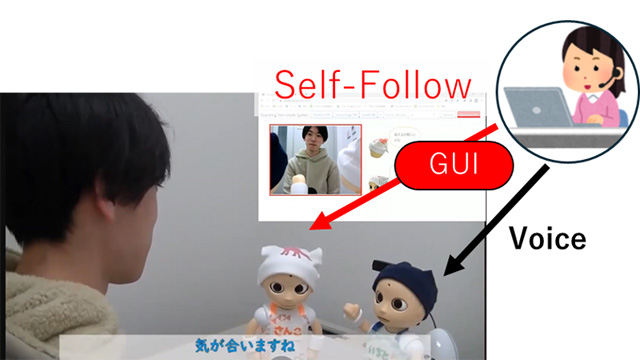Research
What is Social Robotics
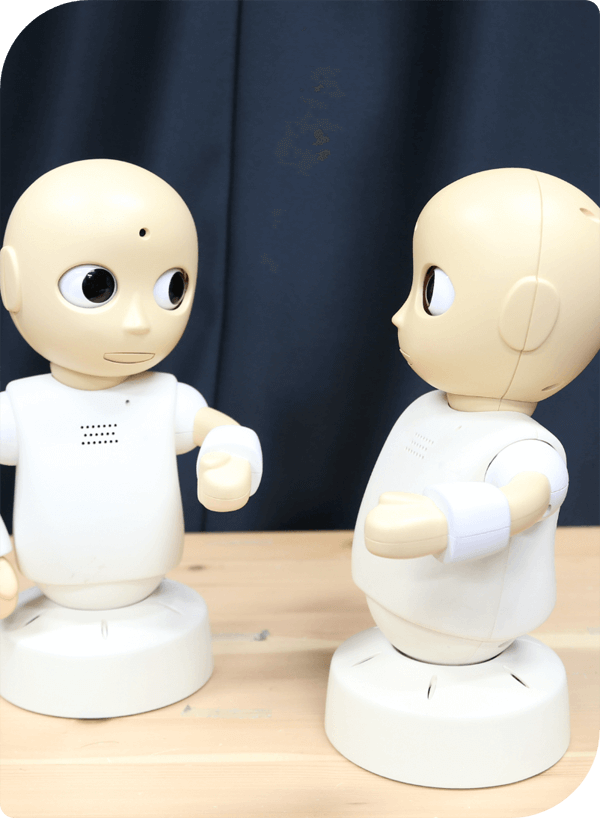
With shifts in lifestyle and demographics, as well as advancements in artificial intelligence and communication technologies such as generative AI, the structure of human society continues to evolve. As a result, developing technologies that support the healthy social participation of all individuals, including those who are socially vulnerable, has become an urgent challenge.
A promising solution to this challenge is social robots—artificial agents that, as members of society, take on certain human roles with performance beyond human capabilities and contribute to the structure and sustainability of society. While the ability of robots to engage in conversations as individual entities has advanced rapidly, enabling robots to support individuals and serve as a bridge between people and society requires a more fundamental capability: human-like sociality—the ability to interact with people in social contexts.
To address this, our laboratory promotes research in social robotics. Specifically, we investigate the requirements for robots to be accepted as members of society and contribute to its structure and maintenance. We also explore the societal impacts of introducing social robots and examine how they can help solve various social issues.
A promising solution to this challenge is social robots—artificial agents that, as members of society, take on certain human roles with performance beyond human capabilities and contribute to the structure and sustainability of society. While the ability of robots to engage in conversations as individual entities has advanced rapidly, enabling robots to support individuals and serve as a bridge between people and society requires a more fundamental capability: human-like sociality—the ability to interact with people in social contexts.
To address this, our laboratory promotes research in social robotics. Specifically, we investigate the requirements for robots to be accepted as members of society and contribute to its structure and maintenance. We also explore the societal impacts of introducing social robots and examine how they can help solve various social issues.
Theme 01
Communication Robots in Society
With the rapid advancements in technology in recent years, robots equipped with flexible conversational abilities are expected to integrate into society, providing companionship to individuals and serving as a bridge between people and society. In our laboratory, we conduct research to identify the essential social functions that robots must possess to genuinely empathize with humans and establish long-term, trusting relationships.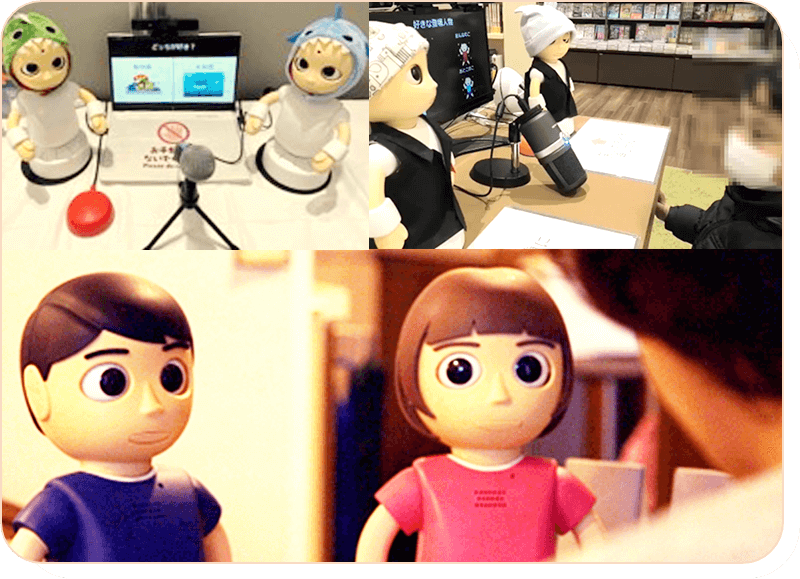
Theme 02
Conversation Space that supprt human-human communicatoin
Face-to-face, one-on-one interaction is a fundamental form of human communication, but it is not always the optimal approach in every situation. In our laboratory, we leverage dialogue robot technology to create new interactive spaces where people can communicate in different ways and with different emotional states. This includes scenarios where robots act as intermediaries or where individuals converse through robotic embodiments, enabling novel forms of interaction beyond conventional face-to-face communication.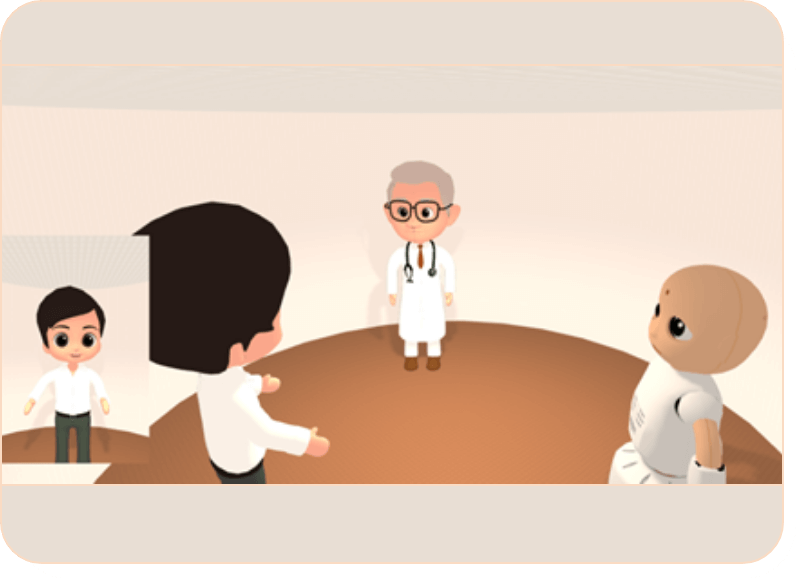
Theme 03
Supporting Mental Health, Treatment and Education
Many individuals, including those with autism spectrum disorder, face challenges in social interactions. Humanoid robots, while providing a sense of interacting with a human-like entity, are expected to serve as conversational partners that alleviate some of the difficulties inherent in human communication. Our laboratory explores the application of such robots for mental health support and therapeutic interventions.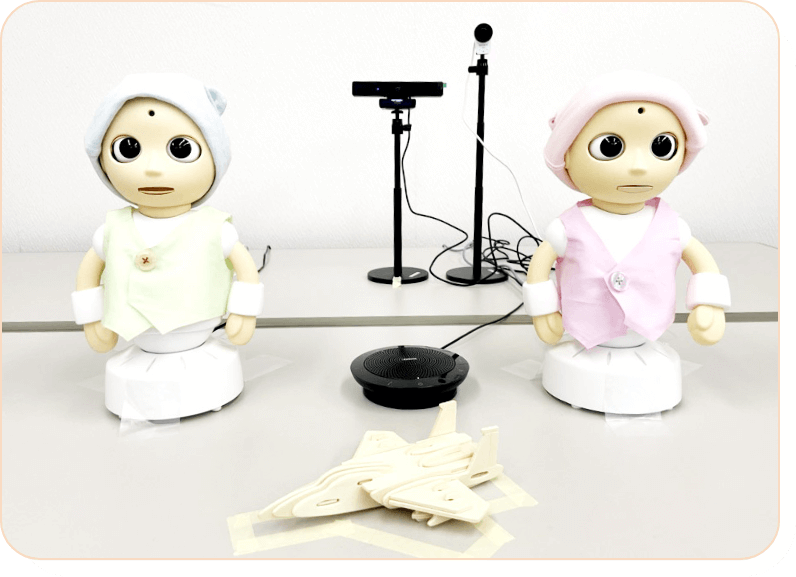
Theme 04
Development of Autonomous Intelligent Systems Based on Robot Learning
We are engaged in research and development of intelligent robots that can autonomously operate in the real world by deeply integrating machine learning and robotics. Through robot learning using imitation learning and large language models, we aim to acquire cognitive functions related to object manipulation, language understanding, and intention estimation, with the goal of creating autonomous systems that can naturally collaborate with humans.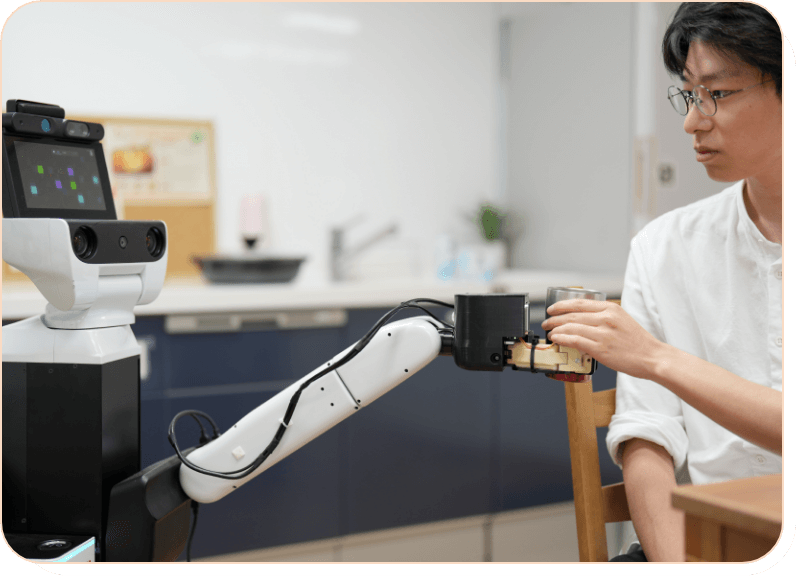
Theme 05
Understanding Emotions and Consciousness Through a Constructive Approach
Through a constructive approach of understanding by building systems, we are researching why emotions, subjective consciousness, and creativity that we experience arise. In particular, by utilizing neural circuit models that learn human biosignals and probabilistic generative models based on symbol emergence systems theory, we aim to understand the "mind" from both embodiment and social perspectives.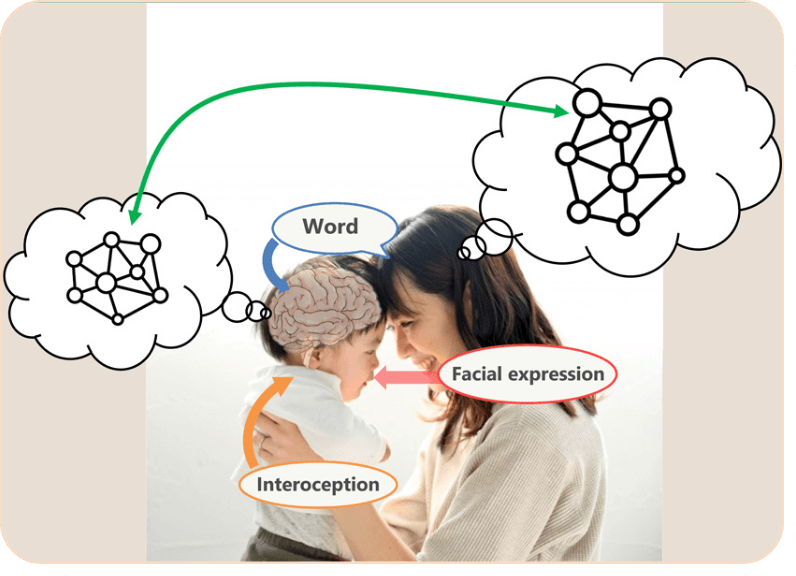
Individual Research Projects
In the Social Robotics Group, all undergraduate, master's, and doctoral students, as well as research staff, pursue their own unique research themes, each contributing to the field of social robotics from their respective perspectives.
--------この一行上の空白行から[終了]まで全てを選択し削除してください--------
--------[終了]--------
--------この一行上の空白行から[終了]まで全てを選択し削除してください--------
--------[終了]--------
--------この一行上の空白行から[終了]まで全てを選択し削除してください--------
--------[終了]--------
--------この一行上の空白行から[終了]まで全てを選択し削除してください--------
--------[終了]--------
--------この一行上の空白行から[終了]まで全てを選択し削除してください--------
--------[終了]--------
--------この一行上の空白行から[終了]まで全てを選択し削除してください--------
--------[終了]--------
--------この一行上の空白行から[終了]まで全てを選択し削除してください--------
--------[終了]--------
--------この一行上の空白行から[終了]まで全てを選択し削除してください--------
--------[終了]--------
